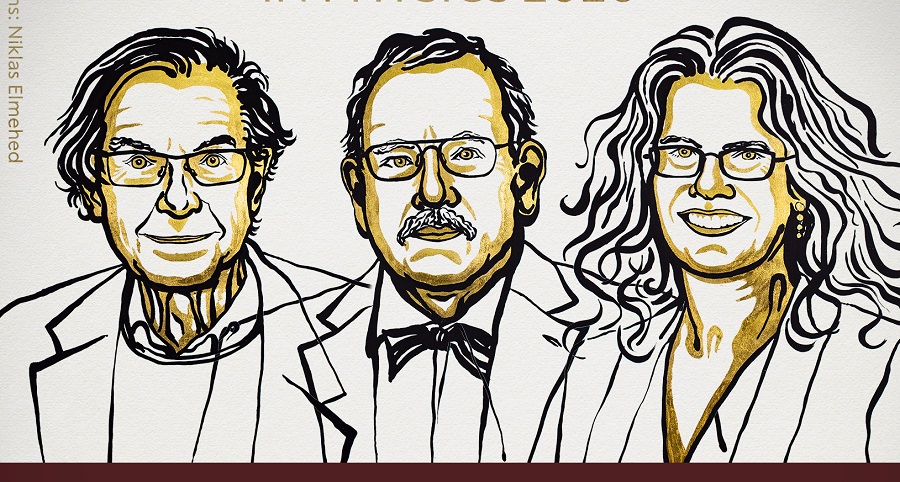Three scientists who unravelled some of the deep mysteries of black holes, the awe-inspiring pockets of the universe where space and time cease to exist, have won the 2020 Nobel Prize in Physics.
Britain’s Roger Penrose, professor at the University of Oxford, won half the prize of 10 million Swedish crowns ($1.1 million) for his proof that black holes are a direct consequence of Albert Einstein’s general theory of relativity.
“It was an extreme honour and great pleasure to hear the news this morning in a slightly unusual way — I had to get out of my shower to hear it,” Penrose told reporters from his home in Oxford on Tuesday.
German Reinhard Genzel, of the Max Planck Institute and University of California, Berkeley, and Andrea Ghez, at the University of California, Los Angeles, shared the other half for discovering that an invisible and extremely heavy object governs the orbits of stars at the centre of our galaxy.
Ghez — only the fourth woman to be awarded the physics prize after Marie Curie in 1903, Maria Goeppert-Mayer in 1963 and Donna Strickland in 2018 — said she hoped it would inspire others to enter the field.
Asked about the moment of discovery, Ghez said: “The first thing is doubt.”
“You have to prove to yourself that what you are really seeing is what you think you are seeing. So, both doubt and excitement,” the 55-year-old American said in a call with the committee after receiving the award.
Genzel was on a Zoom call with colleagues when the phone rang. “Just like in the movies, a voice said: ‘This is Stockholm’,” the 68-year-old astrophysicist told Reuters Television in his cluttered office on the outskirts of Munich.
He was flabbergasted by the news:“I cried a little bit.”
Scientists have wondered since the 18th century whether any object existed in the universe that would exert a gravitational pull so strong that light may not be able to escape.
Einstein predicted in 1915, in his general theory of relativity, that space and time could be warped by the force of gravity. Yet he did not actually believe in black holes, and finding a way to prove their existence baffled scientists for another 50 years.
It was not until a seminal paper in 1965 that Penrose proved that black holes can really form — describing them in detail and stating that, at their centre, there is a singularity where time and space cease to exist.










